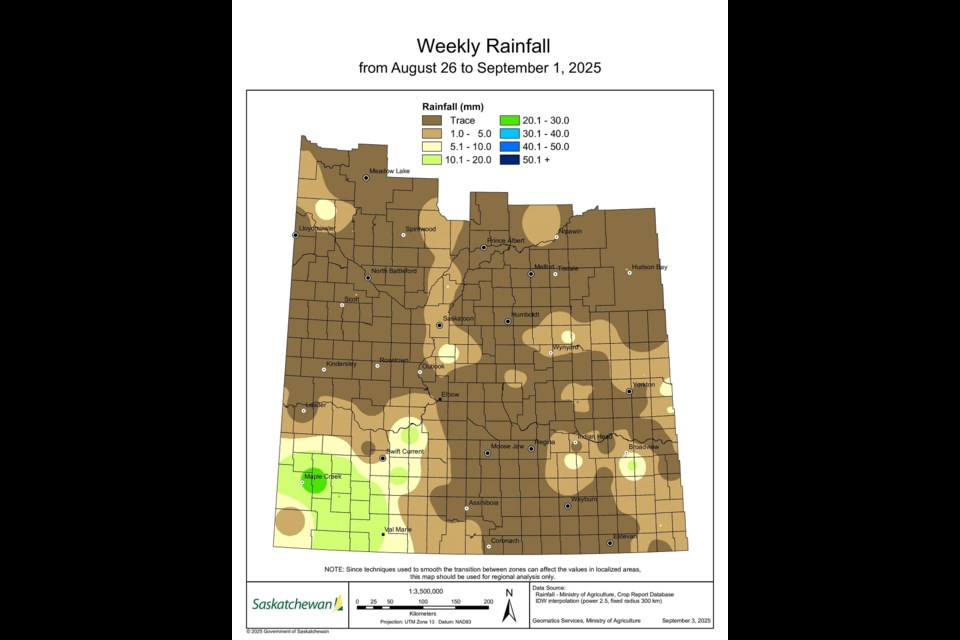The hot weather last week allowed farmers in Saskatchewan to make headway with harvest.
The crop report has progress at 23 per cent, up from 11 per cent last week but still back of the five year average of 40 per cent and the ten year average of 34 per cent.
Winter wheat is the most harvested crop at 91 per cent as well as fall rye at 88 per cent. For pulses, 73 per cent of field peas and 60 per cent of lentils are in the bin. For spring cereal crops, triticale is the furthest ahead at 61 per cent, followed by barley at 34 per cent, durum at 30 per cent, oats are 17 per cent and spring wheat is 14 per cent completed. Most oilseed crops are still in the field as mustard is 10 per cent harvested, followed by canola at four per cent and no flax crops have been combined yet.
The southwest has 39 per cent of harvest completed and the southeast is not far behind at 33 per cent. Farmers in the east-central region are 16 per cent complete, the west-central at just 10 per cent, the northeast is at 13 per cent and the northwest 12 per cent complete.
Not much rain was recorded around the province and while topsoil moisture declined as a result, it is still very adequate. Producers are hoping for rain after harvest to replenish soil moisture.
The Piapot area had the highest amount of rainfall at 25 millimetres (mm), while the Dollard area had 20 mm, and both the Cadillac and Shaunavon areas received 18 mm over the past week.
Provincially, crop land topsoil moisture is rated as two per cent surplus, 67 per cent adequate, 29 per cent short and two per cent very short. Hay land moisture is two per cent surplus, 55 per cent adequate, 36 per cent short and seven per cent very short. Pasture moisture is three per cent surplus, 51 per cent adequate, 37 per cent short and nine per cent very short.
Wind and dry conditions were factors for crop damage this past week, along with grasshoppers and bertha armyworms. The bugs, however, have caused minor crop damage in some regions of the province. Crop regrowth and lodging are causing challenges for producers while combining.
Crops Extension Specialist with the Ministry of Agriculture's Outlook regional office Tyce Masich has heard early yields range from good in the eastern part of the province to mixed in the west. Yields will be covered in next week's crop report.
In the report. farmers are reminded "to exercise caution and remain safe in all the work that they do."



